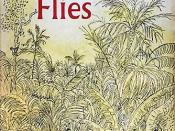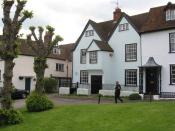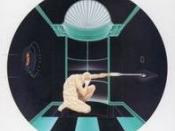The Nature of Mankind and Society in Lord of the Flies
Lord of the Flies depicts a clear understanding of inherent evil hidden in human nature. Even Golding himself says that "the theme (of the book) is an attempt to trace back the defects of society to the defects of human nature...The moral is that the shape of society must depend on the ethical nature of the individual and not on any political system." Throughout the novel, Golding illustrates that instinctual evil/viciousness within man is inevitable especially under the circumstances of the boys. The island epitomizes a microcosm of human society and because the boys are marooned on an island where there is no recognized authority, they quickly forget the social values that their parents taught them. They slowly begin to lose their dignity as "British boys" and select groups and leaders, and lead their lives according to their basic instincts rather than according how a civilized society would live.
Evil nature does not abruptly take over boys but it gradually sneaks up on them. The first incident when a conflict between evil vs. good nature comes up is when Jack encounters a pig for the first time and ends up not killing the pig because, "They knew very well why he hadn't [killed the piglet]: because of the enormity of the knife descending and cutting into living flesh; because of the unbearable blood"(31). Jack's attention is especially drawn to the pig, feeling a stealthy need to butcher it. Since Jack's hunting stimulus did not have enough time to overcome rationality of society, he does not kill it, and later he because of this he goes on to say, "I agree with Ralph. We've got to have rules and obey them. After all, we're not savages. We're English, and the...


